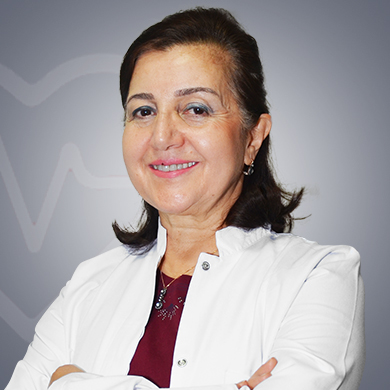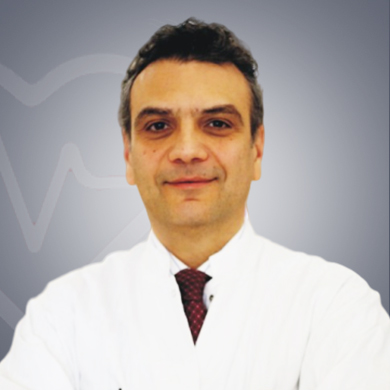
Pediatric Cardiologist
Ulus, Turkey
38 Years of experience
Speaks: English
Dr. Feyza Aysenur Pac is a specialized Pediatric Cardiologist in Turkey. And one of the most sought-after medical specialists in Ulus, Turkey. The doctor has over 38 Years of experience and was associated with Liv Hospital Ulus.
Association and Memberships Dr. Feyza Aysenur Pac is part of:
Qualifications :
What is the medical expertise of Dr Feyza Aysenur Pac?

Dr. Ahmet Ozkara is a specialized Cardiac Surgeon in Turkey. And one of the most sought after medical specialists in Ulus, Turkey. The doctor has over 27 Years of experience and is associated with Liv Hospital Ulus.
Association and Memberships Dr. Ahmet Ozkara is part of:
Qualifications :
Hospital Address :
Ulus Mahallesi, Liv Hospital Group, Canan Sokak, Beikta/Istanbul, Turkey
What is the medical expertise of Dr Ahmet Ozkara?
Please make sure to see your doctor using Telemedicine before you even board a flight
Given below are some of the most sought after Heart Specialists available for online consultation in Ulus, Turkey:
Listed below are some of the top Heart Specialists in other cities:
A cardiologist or a heart specialist is a doctor who studies, diagnoses, and treats conditions of the cardiovascular system, i.e., the heart and blood vessels. Cardiologists are also qualified to treat heart attacks, arrhythmia, heart failure, heart valve disease, and high blood pressure.
To make a diagnosis, cardiologists may carry out physical exams, order tests like an electrocardiogram (EKG), blood tests, exercise stress tests, and interpret tests. They also prescribe medications and recommend lifestyle changes such as reducing stress levels, diet, exercise, and managing weight. Heart specialists or cardiologists can perform various procedures, such as inserting a cardiac catheter or implanting a pacemaker. Cardiologists may also teach at universities and conduct research within labs to develop new treatments.
Different types of heart doctors are:
To become a heart specialist or cardiologist, you need to go through a long period of medical education for acquiring board certification and licensure. After completing 10+2 with PCB, a candidate can continue your further studies towards becoming a cardiologist.
These doctors have special training in the field of cardiology. Cardiologists have to complete MBBS before focusing on heart-related specialties.
A cardiologist undergoes many years of medical training. Basic steps to become a cardiologist are:
Some common cardiac conditions treated by a heart specialist are:
Your cardiologist may order some medical tests to help find out what heart condition you are suffering from. Some of these tests are explained below.
Called a silent killer, heart diseases often occur with no symptoms until a major health event like a heart attack or a stroke occurs. This is the reason why it’s important to assess your risk factors now to recognize the early signs and seek preventative treatment. The presence of any of the below nine factors may the reason to seek the help of a heart specialist or cardiologist:
Your first appointment with a heart specialist will involve a check of your vitals, which is a non-invasive method to measure your heart’s electrical activity. Also, the clinical staff will note all details about your family and health history that a cardiologist or heart specialist should know.
Your cardiologist will thoroughly examine your heart health and might suggest some tests that can include urine or blood tests, an electrocardiogram (EKG), an PET, MRI, or CT scan, or a stress test. A heart specialist can diagnose any existing condition and determine future risks. They will also help create a routine that benefits your overall heart health and reduces your risk of developing heart conditions.
Below are somecommon procedures performed by a Heart Specialist: